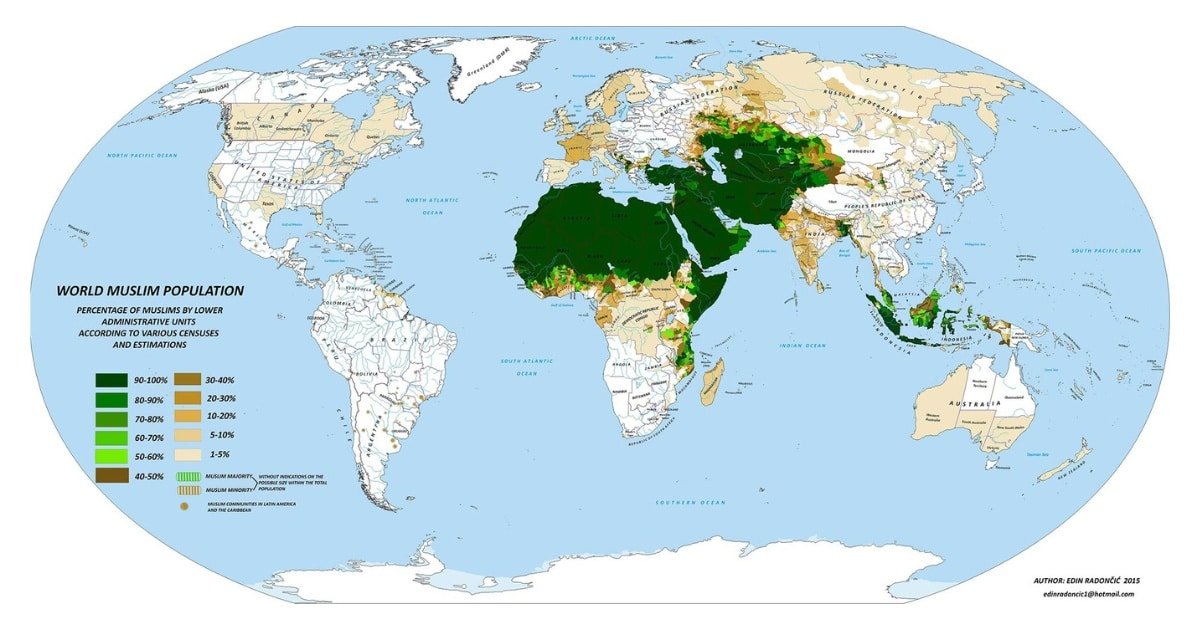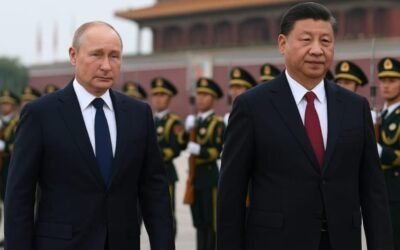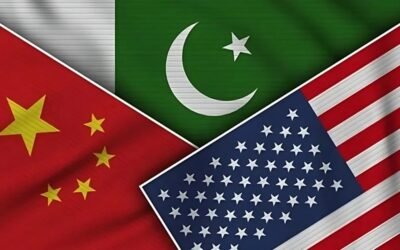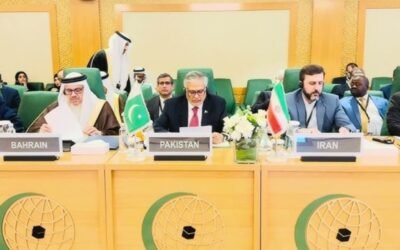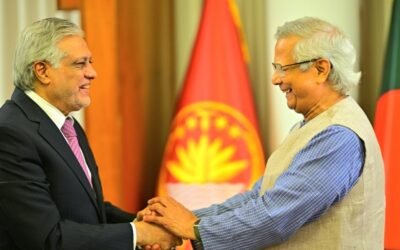Pakistan has always demonstrated a very powerful commitment to peace in the Muslim world. It guides its foreign policy through its Islamic identity and diplomatic capabilities. Conflicts in the Muslim World have been mediated by the country. This is based on a tradition with a long history of Islamic solidarity. These efforts by Pakistan make it a crucial player in fostering stability in the Ummah.
Foundations in Islamic Solidarity and Strategic Diplomacy
Pakistan’s ethos of mediation is based on its Islamic identity and vision of its founding fathers. They envisioned the country as a beacon of Muslim unity. This Pan-Islamic orientation became the cornerstone for the foreign policy of Pakistan. It influences the leadership of the nation in multilateral Islamic platforms such as the OIC. Pakistan expresses this identity through pragmatic rather than idealistic diplomacy. It is geographically located between the Middle East, Central Asia, and South Asia, which makes it very credible in Muslim circles. Its experience in domestic conflict resolution, such as peacebuilding in Khyber Pakhtunkhwa and the tribal areas, provides practical mediation experience that it applies internationally.
Yemen: Championing Dialogue and Humanitarian Relief
Yemen continues to face one of the world’s serious humanitarian and political crises. Millions endure hunger, disease, and economic collapse; the political process is stalled, and security situation remains deeply troubling. This cannot be allowed to persist. The people of Yemen… pic.twitter.com/YfR8y9CVmi
— Permanent Mission of Pakistan to the UN (@PakistanUN_NY) August 12, 2025
Pakistan’s role in the Yemen conflict shows its balanced, principled approach. At the UN Security Council, Ambassador Munir Akram pushed for a political solution led by the Yemenis. He said Pakistan fully supports the UN peace process. He stressed the need for an inclusive, sustainable resolution. He also highlighted Saudi Arabia and Oman’s regional efforts. Pakistan addresses the severe human cost of the war. Ambassador Akram noted that 19.5 million Yemenis need urgent aid. Seventeen point one million people face acute food insecurity. Twelve million children lack basic necessities. Pakistan calls on international donors to meet funding commitments. Humanitarian relief is central to its mediation strategy. The country has stayed neutral and avoided military involvement. It urges all parties toward dialogue. This stance shows Pakistan’s impartiality. It underscores a commitment to peaceful conflict resolution over narrow geopolitical interests.
You May Like To Read: How Washington’s Terror Tag Exposed RAW’s Proxy Network
Israel-Iran Crisis: Strategic Restraint and De-escalation
During the 2025 Israel-Iran conflict, Pakistan acted with strategic clarity. Foreign Minister Ishaq Dar affirmed Iran’s right to self-defense under the UN Charter. He quickly denied Iranian claims of Pakistani nuclear support, calling them “fabricated”. Pakistan emphasized its India-centric nuclear doctrine, stating its weapons are only for deterrence against existential threats from India. Dar also urged de-escalation, noting that Iran was open to dialogue if Israel stopped its military actions. This balanced approach maintained ties with Saudi Arabia and the U.S. while preventing regional escalation.

Source: Radio Pakistan
Iran-Saudi Rapprochement: Quiet Facilitation
While China brokered the 2023 Iran-Saudi détente, Pakistan quietly laid the groundwork. It maintained consistent neutrality. During the Yemen conflict, the Pakistan parliament refused to join the Saudi-led coalition. Non-interference was prioritized despite economic ties with Riyadh. The country maintained economic relations with Saudi Arabia. It also cooperated with Iran on border security and energy projects, such as the Iran-Pakistan gas pipeline. This stance made Pakistan an honest broker. Geopolitical limits, however, prevented direct mediation.
The OIC: Institutionalizing Pakistan’s Pan-Islamic Mediation
Pakistan has used the OIC to promote peace and unity in the Muslim world. As a founding member and leader, it sees the OIC as more than a symbolic body. The organization is a key platform for collective diplomatic action. Scholars note that Pakistan’s activism serves its national interests. It also advances Muslim solidarity and conflict resolution. The country raises critical issues, such as the Jammu and Kashmir dispute, at the OIC. It seeks support and shows the OIC’s potential as a mediator. Pakistan works to strengthen the OIC’s institutional capacity. This includes advocating for mediation mechanisms and supporting OIC-backed peace initiatives in conflict zones. Hosting summits and ministerial meetings shows Pakistan’s commitment. It provides space for Muslim nations to resolve differences collectively.
You May Like To Read: Countering Indian Influence in the Gulf: Soft Diplomacy or Strategic Presence?
Pakistan Defense Minister calls on Muslim world to unite and cut ties with Israel
‘We should not shake hands stained with blood of Muslims and Palestinians’ — Khawaja Asif pic.twitter.com/rsHSSLJbDW
— RT (@RT_com) June 14, 2025
Expanding Capacity: From Grassroots to Global Frameworks
Pakistan knows effective mediation requires a strong capacity. It has invested in domestic expertise and adopted international norms. Since 2009, it has worked with the U.S. Institute of Peace (USIP) to train facilitators from conflict-affected regions like FATA, Khyber Pakhtunkhwa, and Swat Valley. These facilitators include tribal leaders, journalists, and NGO workers. They have successfully mediated local disputes, such as between communities and the military in Swat. Their work offers models for international mediation. At the same time, Pakistan strengthens its commitment to global frameworks. Its signing of the UN Singapore Convention on Mediation in May 2025 shows dedication to rules-based solutions for international commercial disputes. This dual approach, building local human capital while following global standards, makes Pakistan a capable and serious mediator.
Conclusion
Pakistan’s mediation approach blends Islamic solidarity with practical strategy. Its efforts focus on sovereignty, such as supporting Yemeni-led solutions. It also addresses humanitarian needs and institutional peacemaking. At the same time, Pakistan navigates great-power competition. As the Israel-Iran conflict and Kashmir tensions rise, it remains a key stability anchor. By investing in grassroots mediators, legal frameworks, and OIC diplomacy, Pakistan advances the founders’ vision. This vision is of a Muslim state promoting Ummah unity through principled pragmatism.

